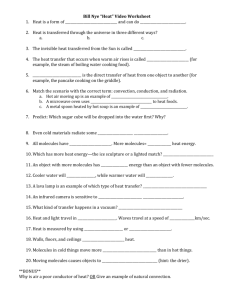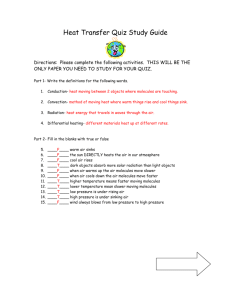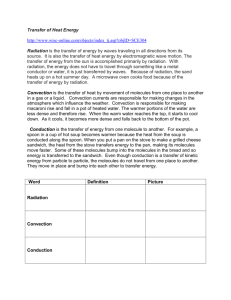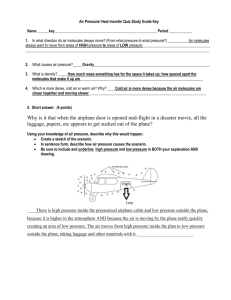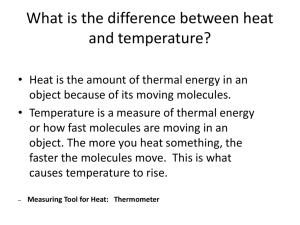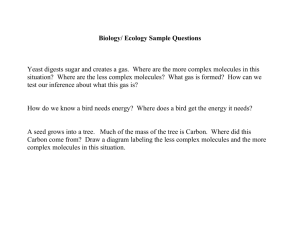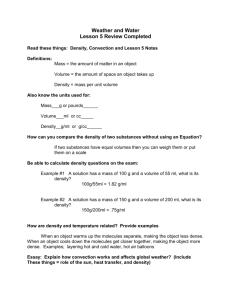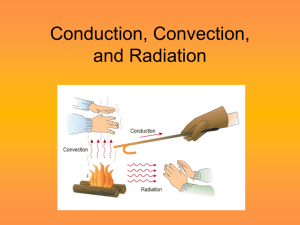Conduction, Convection, & Radiation
advertisement
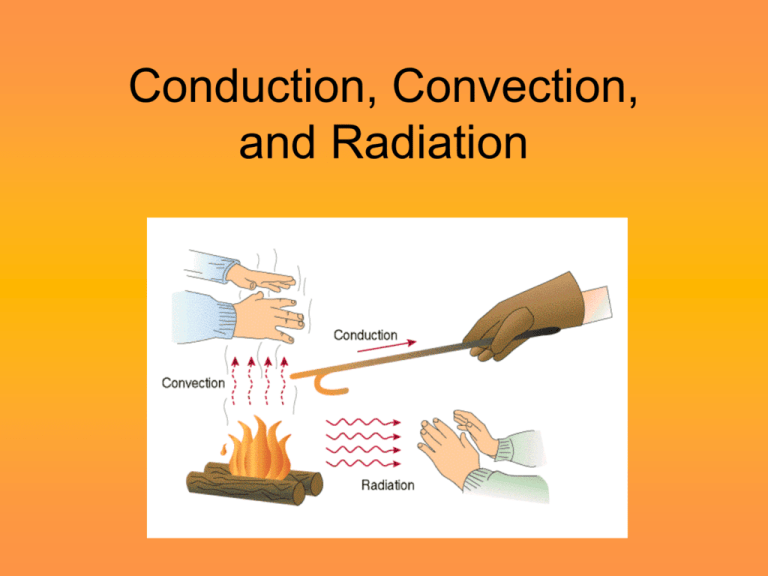
Conduction, Convection, and Radiation Heat Energy • Energy is what makes things happen. • All materials are made of tiny particles called molecules. • Molecules are always moving. • The movement creates heat. • The amount of heat depends on how fast the molecules move. • As the molecules move faster, they take up more space and make the object expand. Heat Transfer • Heat can be transferred from one object to another in 3 different ways: –Conduction –Convection –Radiation Title the page Heat can transfer 3 ways. (skip about 10 lines between words) • Conduction – Definition and • Examples • Convection • Definition • Examples • Radiation• Definition • Examples Conduction • Heat traveling through solids. • Two objects must touch or have direct contact. • As molecules heat up they move faster and expand. • When you touch one hot surface to another, the hot molecules bump into the other molecules which makes them start to move faster. • An object gets hotter from the movement of the molecules. • All solid objects conduct heat, some are better conductor than others. • Metals are good conductors. Examples of Conduction Convection • Heat traveling through liquids or gases • As molecules heat up, the heat makes the molecules move more rapidly and expand. • Creates currents in liquids or gases – hot air rises and cold air sinks. • Uneven heating of our ocean creates ocean currents. • Uneven heating of our atmosphere produces huge convection wind currents. • Scientists use global and local wind patterns to predict weather. Examples of Convection Radiation • Release of invisible heat energy waves from the sun or fire. • No movement of molecules to transfer heat. • Feel warm without touch – heat radiates. • Radiators got their name from this type of heat. • When the radiant energy from the sun hits the earth, the earth soaks up the energy and changes it into heat. Examples of Radiation Balance • Whenever a hot object is placed near a cold object, the hot object will transfer heat to the cold object until they reach a state of balance. • Balance happens when the temperatures of both objects are the same. • The fast moving molecules mix with the slow moving molecules until they are all mixed and balanced.
